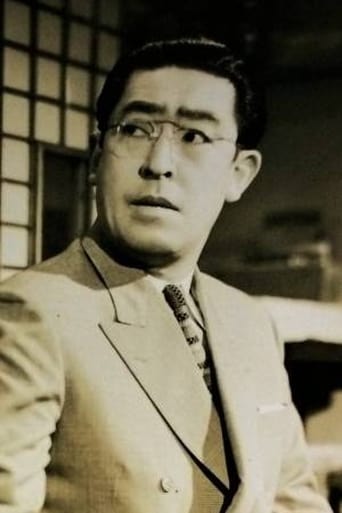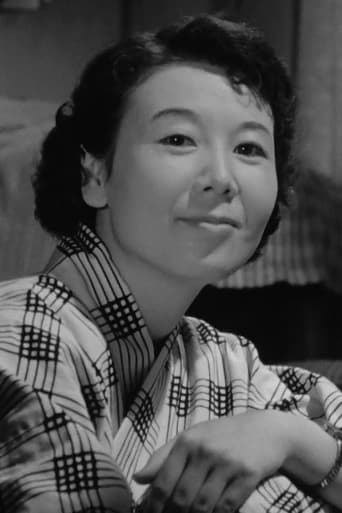Blucher
One of the worst movies I've ever seen
Pluskylang
Great Film overall
Rio Hayward
All of these films share one commonality, that being a kind of emotional center that humanizes a cast of monsters.
WILLIAM FLANIGAN
FLOATING CLOUDS (UKIGUMO). Viewed on Streaming. Subtitles = seven (7) stars; continuity/editing = four (4) stars; restoration = three (3) stars; score = three (3) stars. Director Mikio Naruse's bitter love story (based on a still-in-print novel with the same name) of a woman's pathological romantic attraction to a cold-heart-ed, womanizing loser set before, during, and after the War in the Pacific. Naruse's favorite veteran actress Hideko Takamine (see below) holds this rather fragmented film (the tale is told mostly in flash backs and flash forwards) together by playing multiple variations on one basic role. It's quite a performance (or rather a nuanced set of performances!). The narrative wanders about quite a bit (as do the protagonists). Starting off in Tokyo (from which Takamine's character flees to escape being a De Facto household sex slave); to Malaysia (now modern Viet Nam) and a remote forestry service operation (where the lovers first meet before and remain during the war); to seemingly all over devastated Tokyo (where the repatriated protagonists engage in an endless on-off, love-hate affair); and to a remote forestry station this time on a small (and inhospitable) island south of Kyushu (where the lovers end up). Along the way, the Director does a fair amount of editorializing such as exhibiting his preference for mixed-bathing Onsen and demonstrating one reliable way to get rich quick (start your own religion). Naruse also raises a series of question marks on the viewer's forehead: not much examination/explanation of the psychology behind a stunning, smart, and independent woman's continued attraction to a not-particularly-bright, inferior wastrel; the uncanny ability of the protagonists to always find each other's latest room/apartment in the jumble and chaos of post-war Japan; and the unchanging beauty (even when playing dead) of Takamine's character over what seems to be decades of to and fro (perhaps Naruse couldn't bare messing with the beauty of his lead actress?). Leading actor Masayuki Mori creates a well-defined, self-centered character (the object of deep-seated affection for Takamine's character), but ends up playing at most a supporting role for the actress (Takamine easily steals every scene she is in). Actor Daisuke Katô appears in a humorous cameo role where he is seen buying Mori's high-end new watch ostensibly for cash, but with the real price being the loss of his new wife to Mori's character (with tragic results). Takamine's spectrum of portrayals is simply fascinating to watch. Line reading dynamics, facial expressions, and body language--she employs them all! Her repertoire includes: an innocent appearing but sophisticated and determined young seductress (working as a secretary/typist in Malaysia); playing prostitutes at various levels on the financial-success "food chain"; eye-blink switching from a subservient, passive role to one of complete dominance (in most/all scenes with Mori's character); undergoing an abortion in a performance that does not run afoul of the occupation censors; playing a sick and dying (due to tuberculosis) character who is all but dragged into a climate sure to kill her; on and on. Restoration remains a work in progress. (And this was streamed off the new FilmStruck/Criterion site no less!) The print looks old and gray. Artifacts often appear where reels would seem to have been spliced together originally. Visual wear lines can be seen here and there. Audio artifacts are particularly noticeable during the first third of the movie. Opening credits exhibit jitters. Cinematography (narrow screen, gray and off/on white) seems okay, but some interior scenes are a bit under-lit. Continuity suffers from excessive/poor editing (perhaps to just reduce running time?) with discordant jump cuts occurring particularly during the middle third of the film. Score wanders all over the place (from sort of Middle Eastern to vaguely Hawaiian to melodramatic lush violins) and usually distracts from (rather than adds to) scenes. Subtitles are close enough and often a necessity due to lines delivered in different dialects (sometimes used to make minor plot points). Recommended especially for soap-box opera enthusiasts (and especially if/when restoration is completed). WILLIAM FLANIGAN, PhD.
DICK STEEL
If you're looking for a movie that deals with clingy relationships, then Floating Clouds is without a doubt a movie that fits the bill to a T. Directed by Naruse Mikio and based upon the novel by Fumiko Hayashi, the female character in the movie will bring back memories of those who have had to deal with such stifling clinging, and well, for those who do act as such, a stark and accurate portrayal that would be akin to holding up a mirror and looking at oneself.Hideko Takamine put up a commendable, if not personally what I deem as a remarkably irritating performance as Yukiko Koda, a woman perhaps with little self-esteem and respect, who decided to sacrifice an entire forest for one singular tree. Being sent to Indochina during WWII, she chances upon Kengo Tomioka (Masayuki Mori), and while he seemed to be prim and proper, and not giving her a second glance, soon they fall in love with each other, one despite having a wife back home, and the other, knowingly being the other woman.But when the war ends and they get repatriated back to Japan, she looks him up, only to discover that he will not leave his wife, nor to rekindle their passion started in a foreign land. To make things worse, she discovers he's quite the cad, and to compound the problem, her insecurities and her paranoia makes you wonder why she can't afford to sever ties. It's one thing being made to suffer from unrequited love, but it's another if you are made to suffer deliberately, and bear witness to the insincerity of the other party. Running slightly over 2 hours, it does take its time to showcase the sorry state that Yukiko undergoes.You can't really find fault with Naruse Mikio's direction of the movie - the handling of the narrative structure in the first act was deft, with the transition of time seamless, and the actors do their job to allow you to connect with their characters. However, like I mentioned, perhaps Yukiko Koda did such a fine job, that for me I found her to be a tad too irritating, even for my liking.
Michael Kerpan (kerpan)
"Ukigumo" covers a considerable span of time and numerous locations. It tells the story of a young woman (Hideko Takamine) who served in Japan's forest service in Indochina during WW2, and fell in love with a (married) co-worker (Masayuki Mori) while there. After the war, she returns to Japan, completely impoverished, and finds her lover (more or less) comfortably re-established in his family and uninterested in fulfilling the idle promises he made during the war. While Mori is only willing to dally half-heartedly with her (as well as younger prettier women), Takamine remains obsessed with him. Takamine and Mori do a fine job. I found the story effective enough, albeit a bit overly melodramatic. Not my favorite Naruse film, but very much worth seeing.
rufasff
This melodrama of postwar Japan seemed to resonate with the people I watched it with; many seem to have seen it when it came out and it really spoke to them; but alas it is really a turgid melodrama that can't sustain your interest. Well directed and acted; it none the less becomes a series of redundant bad break scenes for it's heroine. Worth seeing, but not one of the greats of Japanese film.




